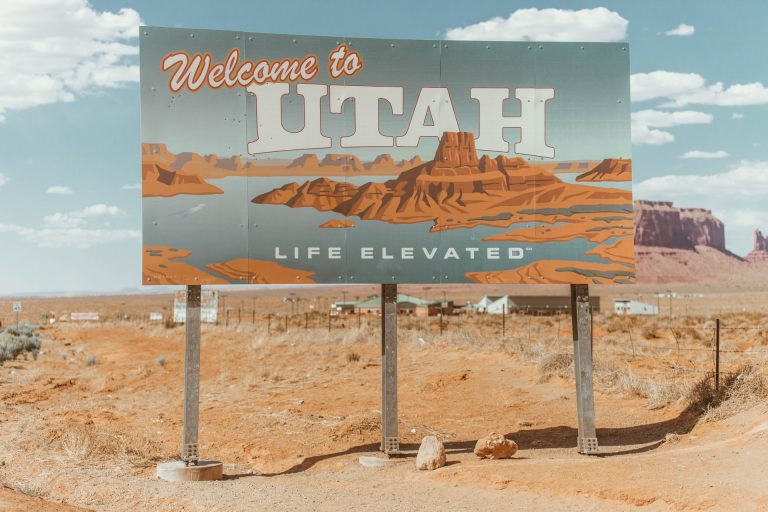The following is a transcript of the video briefing above, lightly edited for clarity and presented here to enable users to search the participants’ comments.
DW Gibson: I’m going to spend just two or three minutes setting the stage for us. And then I’m going to turn the floor over to our guests with some questions that will stimulate the conversation. My name is DW Gibson. I’m a part of the team at Ideaspace. We’re a new 501c4 that strives for a fresh and even-handed portrayal of thought leaders and their ideas, and for bipartisan legislative action. We plan to tackle some of the most intractable issues of our time, and we’ve started with immigration, because why not?
You can check out the work we’ve been doing for the past year at Ideaspace.com, where you’ll find, among other things, our most recent reported essay, what we like to call a Strategic Inquiry, and it concerns this question: Can state-based visa programs give both parties a win on immigration? And I’m happy to say we have two people who are going to do their very best to help us answer that question and others.
The first of our guests is Mr. John Curtis, who of course represents Utah’s third congressional district. Before serving in Congress, he was mayor of Provo. And I think his experience in that role definitely informs the conversation we’re having today. He’s also a member of the Problem Solvers Caucus, which I imagine might take a particular interest in today’s conversation.
Our other guest is Demetrios Papademetriou. He’s the co-founder of the Migration Policy Institute, which was founded in 2001. He’s been studying migration and immigration from one angle or another for more than four decades. You know, when I interviewed him a few months ago, he asked a provocative question that stuck with me and in large part inspired the session. He said, and I quote, “Making immigration decisions, going back to the end of the 19th century, has been the exclusive domain of the federal government. And I ask why.” Indeed, why? States are often the laboratories of democracy when it comes to issues like education or health care, but not when it comes to immigration or more specifically visa distribution. As our team was researching this topic, it was interesting to learn that there are already highly specialized sort of micro programs that are already out there that do inch toward empowering states and localities on the matter of visa distribution. Just two quick examples, the Conrad 30 Waiver program. It allows foreign medical graduates of U.S. institutions to apply for a waiver that lets them skip a required two years of living outside the country before they can work in the U.S. So essentially states and localities can seek and hire badly needed foreign born American trained doctors, right? And there’s also the Global Entrepreneur and Residence Program, a Massachusetts initiative by which universities distribute visas to foreign nationals who can simultaneously work with the school and execute a business plan in the community. The program recognizes a dearth of visa opportunities targeted to entrepreneurs in the country. Those are just two examples that are already in place, starting points for this conversation.
And of course we have the 2019 bill that Representative Curtis put forward, right? The state sponsored Visa Pilot Program. And I just want to give basically the main contours of that bill quickly so we have it in place and it sets the stage for our conversation. So Representative Curtis’s bill from the last Congress creates a new category of visa for foreign workers. And these visas could be distributed by states that choose to opt into the program. Each state that opts in starts with a minimum allotment of 5,000 visas, and that number can grow based on each state’s population. The total cap for the program is 500,000 visas, not including spouses and children of workers. The visas can last up to three years, but within that maximum, it’s up to each state to decide the duration of the visa, both foreign nationals and law-abiding unauthorized individuals who are already in the country would be eligible for the visas. Unauthorized workers would be required to pay a penalty of $1,000.
Regional partnerships between states are encouraged for seasonal employment and things of that nature. States are incentivized to retain visa holders. Future visa allotments would be determined by how well each participating state retains the visa holder it authorizes. And finally, individuals who secure visas are not tied to a single employer. I think that’s a very important fact. They operate in the free labor market within the region that’s given them the visa. I think it’s very important to note, too, that Representative Curtis’s bill establishes a new category of visa that’s an addition to existing programs, right? So this is not meant to replace any programs. It’s meant to be an addition to existing programs.
So that’s the contour of Representative Curtis’s bill. And I want to just take a quick second to say for those of you listening in, please feel free to send us questions through chat. We’re trying to identify the pressure points, the opportunities on both sides of the aisle for making this idea come together. We really do think it has potential across the political spectrum. And we’d love to have input and questions from each of you as we discuss this for the next 20 minutes or so.
So Mr. Curtis, I will start with you. You know, when we spoke to the former governor of your home state, Gary Herbert, about the possibility of empowering states on the issue of visas, he reminded us that Reagan famously said, “The federal government didn’t create states. The states created the federal government.” So it seems like this idea fits into a larger Republican fundamental about states’ rights, which is a great starting point. Tell me if you see it that way too please. And for the members of your party who might initially balk at making more visas available to foreign nationals, how would you characterize the anticipated benefits of implementing a plan like yours?
Rep. John Curtis: Great questions and thanks for including me in this discussion today. You are absolutely right. Utahns love states’ rights. They complain every time the federal government tells them what to do. This is a home run in my state. It was supported by the previous governor and our new governor because of that. And to my colleagues who…. You are right. Many of my colleagues, just by their nature, don’t want to increase spaces. I would say this to them. “You should really like this visa program.” It’s labeled a pilot for a specific reason. States are very, very accountable for the way they handle this. If they have less than 3% or more than 3% of the visa recipients who are out of compliance, they lose their visas for the following year.
That is accountability that my colleagues want on the Republican side. We can get far greater accountability on the state basis than we can on the federal government. As people know, when people come in on visas from the federal government, they’re hard to track. We don’t know where they are. Unless states know where these folks are and what they’re doing, they lose additional visas in the future. And to me, it’s a great way for Republicans to say, “Yes, we can get what we want out of visas.” And the states are the answer to do that.
DW Gibson: And you know, something you brought up when we spoke earlier is this idea of accountability and how it feels and again, you’ve been a mayor. I think you might’ve experienced the heat of meeting your constituents in that context and maybe at the federal level, but talk about that sort of a feeling of accessibility and a possibility for accountability more on the local level.
Rep. John Curtis: Absolutely. Look, when I was mayor, that was the ultimate accountability…. You see your mayor in the grocery store, you see them at ball games, you see them at church, you see your state legislators and your governor. You don’t see your federal representatives. The federal government seems so far away for people and so hard to hold them accountable. And yet your local elected officials are right there. And your likelihood of accountability, in my opinion, is much, much higher.
DW Gibson: Mr. Papademetriou, I want to bring you into the conversation. You’re at the Migration Policy Institute which holds the view that immigration is in fact, a very positive force when it’s properly managed. And we know you bring enthusiasm to the ideas I stated earlier about empowering states when it comes to distributing visas. So given this, what do you see as the hurdles to embracing this idea? Let’s say specifically on the Democratic side of the aisle?
Demetrios Papademetriou: Well, not quite clear that there’s going to be as much of a reaction on the Democratic side to this idea. Certainly the Democratic Party now is the party of large immigration, rather than small immigration or measured immigration, or it appears to be. And it seems to me that if some of their priorities, in terms of protection visas, and visas to families, et cetera, are able to stay at least constant, they would probably be willing to support some sort of a program similar to what Mr. Curtis is proposing because what he’s proposing makes eminent sense. I am not going to say anything about how many thousands of visas, half a million, who knows. As to me, it seems like perhaps too large a number to actually begin a conversation. It may be something that a couple of years later becomes sort of a reasonable number.
I am a big supporter of pilot programs since this is so new and since a lot of people will need to get buy-in, it is important that we try the three different ways of getting to the same point. For instance, states of course ultimately will be responsible for it, but I think it is important to include all of the community-based organizations, employer groups, et cetera. This way, it becomes, in a sense, a whole of society as well as a whole of government idea. People need to embrace this. Politicians in this state need to take responsibility for it and Congress and the administration need to buy in, but perhaps it’d be slowly. That’s the only modification, the main sort of modification that I would make. And I think that as we get into the details of something like that, we have to build all of the necessary sacred breakers and adapters that will allow us to sort of look at the program as it develops and propose changes to it.
The biggest problem with United States immigration laws or the immigration system is that it seems to be sort of set in stone. It probably came all the way from the high mountain with Moses. It didn’t, okay. We did it and we have been refusing or unable to actually fix it. And no country that takes anywhere near the numbers of people that we take in as new commerce in our country and offer them all the things that we offer them in return for them to work hard, play by the rules, et cetera, actually have the capacity, the ability to change the system. And that is why I like to sort of build into whatever it is that may come out of it, circuit breakers. Resilience becomes a key. I like to use the phrase “policy curiosity.” The United States seems to lack even the most modest curiosity that is required if you’re going to run a large program like this.
Because our program is large, everybody focuses on the 1 million permanent visas. But if you put together all of the other reasons, many of them multi-year visas that get renewed every year, we have very large numbers of new people who are coming into the country to work in the country, 1.6, 1.7 million is what my institute estimated back 15 years ago. So I’m sure the number is larger now. And it seems to me that we ought to be trying new ideas.
The final thing I want to say on this and I think Mr. Curtis is exactly right. This is something that satisfies the center because it’s rational. The right of center because it makes good economic sense. And it has sort of low legal provisions that will sort of make it difficult for the thing getting them out of control. And the left of center that basically says, “You know what? This makes sense because this is not a number of people entering that undifferentiated 1.1 or 1.7 million people in all going to 15 places around the country.” This is going to go to places that have specific needs; demographic needs, economic development needs, depopulation needs, small, tiny, and shrinking and new work at pipelines. This makes eminent sense. Only the representative can tell me whether this is because it makes sense therefore, we’re going to have legislation. That’s his job, not mine.
DW Gibson: Yeah. Well, this point you raised about not setting it in stone, right? Fluidity, I think is very important. Something that Representative Curtis touched on too… The idea that he highlighted, too, that this is a pilot program, right. Set to expire after five years, correct, Representative Curtis?
Rep. John Curtis: Yeah. And I would also… Everything that was just said, I totally would agree with but let me address the size of this thing because it is an important number to get right. Too big and we can’t get it passed, too small and what’s the point. And the beauty of this stage of the legislation, we did introduce it last Congress and we’re waiting to introduce it this Congress, because we want to refine that. We, in my office, we’re totally receptive to what is that right number. Like you say on the one hand, you say to Utah, “We’ll, you only get 5,000 visas,” they’re going to be mad at me because it’s not enough. But if you say across the country, “You’re going to get a half a million,” it sounds pretty big. And so we’re receptive to that as we are with most of the provisions in this bill to get it right and to get the support it’s going to need to get through.
Demetrios Papademetriou: Yeah. Hi, DW, I love the idea of the incentives and disincentives because it is important that the community, in a sense, becomes responsible for embracing this new commerce. This way, once they are provisional status, if you want to use, immigration words, the vast majority of them stay. This is ultimately the test as to whether this is a good idea or not a good idea. If people stay and they stay there because they have jobs, because their kids are accepted, because they’re slowly becoming members of the community, then we all win.
DW Gibson: And so I think two points, one is what you just raised that success could be measured by how successfully we bring people into communities, but also Representative Curtis, you brought up a very important point that I think gets lost in these discussions when we spoke last time. And that is that some workers really are not looking to permanently immigrate to the U.S. I think we lose track of the fact that there are some workers that want to come here for a season or annually or so forth and are part of the puzzle. And we sort of make this assumption that everyone that wants to come to work wants to come here to live. But I think it’s important to remember that, too, right, Demetrios, because it’s an important dynamic we lose track of.
Demetrios Papademetriou: Absolutely, the ability for people to make free choices as it were as to whether they’re going to spend three or four years and then go back and build something with their savings and all that. And then five or seven years later, they can re-enter the program, creating some sort of a natural rhythm of movement. And again, it’s difficult to identify real losers out of it. With the possible exception that some people say it’s not tough enough… . But the fact remains that you need to come up with a system that makes sense for everybody. And then we’re going to get a bit more courage to actually try other things that are also needed in the immigration system.
DW Gibson: So Mr. Curtis, when we talk to mayors and state officials about this idea, it was really eye-opening to see how apolitical it can become the more local the issue gets. There are Republican and Democratic mayors across the country that have put together welcome programs, trying to lure bigger populations of foreign workers, bigger immigrant communities to help revitalize their towns and cities as Mr. Papademetriou just said. We’ve seen state-administered welcome programs administered by Republican governors like Rick Snyder in Michigan and the Democratic mayor of Akron, Daniel Horrigan, who told us, quote, “I don’t look at the party affiliation of somebody that sits down at the table to work on this plan. With our county executives and our business community, it’s not a check mark I look for,” end quote. And I think that apolitical environment that Mr. Horrigan described is important to hear, and perhaps something that you could echo from your experience in Provo. But what kind of voice would you, what would mayors and county officials and business leaders as Mr. Papademetriou was talking about have in a plan like yours? How would we empower them in a plan like this?
Rep. John Curtis: So this is a really fun question because it’s two-sided because on one hand, we’re giving the states a lot of authority on A, do they even want to opt in, and two, how do they want to use these visas? I can actually imagine a scenario where mayors are grumpy with their governor because they don’t get their allocation in their particular industry. Well, that’s a nice problem to have, and if that puts pressure on the program to expand, that would be a great problem to have. But I actually think that’s one of the problems of this program is there just won’t be enough to satisfy every industry, every city, every county that would like a governor to send the workers their way. And yet, that you go back to that accountability, that governor is far more accountable to those local mayors and legislators than the federal government is to those very same people.
DW Gibson: And I think political debates playing out between mayors and county executives and governors are much more…. It’s much more feasible for citizens, for voters to get involved in those discussions at town hall meetings and so forth, as opposed to sort of angling between Washington D.C. and home offices, right?
Rep. John Curtis: Exactly. That’s the accountability point that is much, much higher in this bill than other things that we’re looking at.
Demetrios Papademetriou: And DW, if I may add that the government does not lose control. The federal government does not lose control of it although the sort of due diligence things that it will continue to have responsibilities, security backgrounds, et cetera. It’s just going to be the filter through which people are eligible for such a program. So I don’t think we’re losing that much outside, of course, of losing some control or monopoly, I shouldn’t say, over the issue.
But it would make a lot of sense and it’s not… We’re thinking of New York. New York has so many grants, but you go to upstate New York and upstate New York needs workers, it needs people. But many other places, you’d take entire chunks of a state; the top half of Minnesota, parts of New York, parts of every state practically around the union, except perhaps the two coasts. And you find out that you put great universities, you produce great graduates who as soon as they graduate, they move to the cosmopolitan cities around the country. That’s where the action is. That’s where the good jobs are, et cetera.
So what are all these parts of states left with? They’re left with people who haven’t really gone to university or haven’t been successful, and an older and continuously aging population. And I mean, this is something that we all do sooner or later, we’re going to have to confront this. The question is why don’t we plan it now?
DW Gibson: Well, those are great examples. I mean, because to me that’s part of the appeal of this idea, right? So it can be used to revitalize a major city like Detroit that’s suffered from depopulation, or it can, as you talk about, revitalize upstate New York. I spent time in Middletown, New York, an old sort of rust belt town for all intents and purposes. Manufacturing that’s been revitalized on the backs of immigrants. Hazleton, Pennsylvania, is another example. There are a lot of examples out there. So it also does things for different political landscapes, right? Because different voters live in these different landscapes. We should acknowledge that and it helps them all. And I wonder if you could talk a little bit, Demetrios, about this thing that you and I have talked about before. This important balancing of values and need, right? And so this gets at the heart of a need, right? It tethers immigration and economics.
Demetrios Papademetriou: And it is exactly something that we in the United States have always been a bit uncomfortable with. I mean, if you look at the distribution of visas. If you look at most of the arguments that we have, they’re about how can we occupy — and I don’t mean to make fun of it — but how can we occupy the extremes as it were, both in terms of what we include under the family categories and how small our economic migration stream is. No other country. You know, I think this is an instance in which our history and sense of exceptionalism sort of pricks us. It makes it difficult for us to actually be as swift as we are in so many other things. So, why don’t we balance it a little more? And if the answer is that we need to keep the family the way it is, I don’t agree with it.
There’s nothing wrong with shaving a hundred thousand visas from that and putting them into another category, so be it. But you need to understand, we need to understand as a nation and accept the fact that the main purpose of migration is to contribute to the growth and competitiveness of the receiving countries’ economies. And that’s what the idea is. That’s what immigration ought to be because we all benefit. When we do that well, everybody benefits and so do the families of immigrants. And so do all of the protection cases that we bring into the country. We need to really anchor this in a much more balanced way than we have to date.
DW Gibson: And what I really think is great about this idea, and again, Representative Curtis’s bill and beyond. This sort of idea broadly speaking, is that it’s initiated by this need; economics. But it’s proven out, it’s born out, it’s incentivized through values, through, “Can we welcome these people into communities for the duration of the reason, for whatever the case may be? Can we find ways to welcome them into the communities?”
Representative Curtis, I know we just have a couple of minutes left. I want to respect everyone’s time. Maybe a good final question for you is we have so much economic… We have so much data from economists. We have a letter signed by about 1,400 economists talking about the economic value that immigrants bring to the country. It’s pretty well established, but even still, there are narratives that persist about American workers who are fearful of introducing more workers to the labor force. So I wonder what you could say to those workers who might be… Still carry that sort of misguided worry. Misguided, but sincere.
Rep. John Curtis: I do agree. It is very sincere. And if we were, if I was one of those without a job, I think I would have those same concerns. I think this is also the beauty. A state can opt out or opt in to this, right? So if you’re in a state right now, Utah is below 3% unemployment, amazing. Pre COVID, we were 2%. We need workers, right? In a desperate way. But we might have a neighboring state that’s at 10% or 8% unemployment. And that governor maybe shouldn’t opt into this at this time. So what I would say to them is this is why it’s good not to have one-size-fits-all mandates from Washington D.C. that’s going to treat every state’s economy as if it’s exactly the same. This bill lets a state tailor their needs. They don’t even need to accept all their 5,000 visas, right? They can tailor it exactly to what they want and what the needs are in their state based upon their current economic situation.
DW Gibson: Excellent. Well, I want to thank you both for being with us again. I want to respect our time and I want people to leave this conversation hungry for more information, and you can all start again with our Strategic Inquiry at Ideaspace.com. Check out Representative Curtis’s bill from the last Congress, which apparently he’ll be re-introducing and fine-tuning. Demetrios, I appreciate your perspective as well. Thank you both. And thank you everyone for joining us today.
Rep. John Curtis: Thanks, DW. Thanks, Demetrios. Hope I get to meet you in person.
Demetrios Papademetriou: Likewise, sir. And thank you, DW.
Rep. John Curtis: Yes. Thank you. Thanks to our listeners.
DW Gibson: Take care.
Read More:



Strategic Inquiry No. 2


